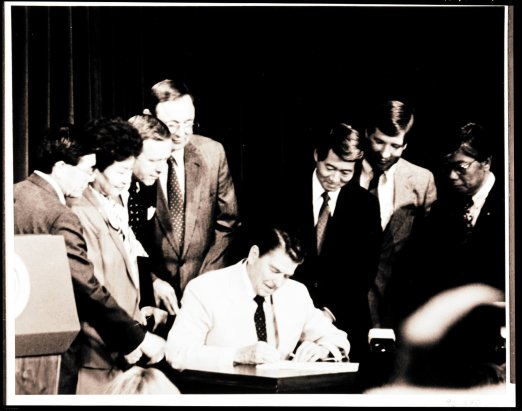Over the past few months, I have had the pleasure of participating on the planning committee for the 2016 Los Angeles Day of Remembrance program. I joined representatives from the Japanese American Citizens League (Pacific Southwest District), the Manzanar Committee, Nikkei for Civil Rights and Redress, and others at JANM to organize the annual event which gathers members of the community to reflect on the enduring legacy of Executive Order 9066. That directive, signed by President Franklin D. Roosevelt on February 19, 1942, authorized the forced removal and incarceration of over 120,000 people of Japanese descent during World War II.

The program was held last Saturday before a standing room only crowd at JANM’s Aratani Central Hall. Entitled Is It 1942 Again? Overcoming Our Fears and Upholding Constitutional Rights for All, the program honored the courage and perseverance of the women, men, and children who were incarcerated during World War II, while challenging the audience to apply the lessons of Japanese American history in today’s context. Following recent terrorist attacks in Paris and San Bernardino, American Muslims, Sikhs, South Asians, Arab Americans, and refugees attempting to enter the United States have been the target of hateful acts and caustic rhetoric—a chilling echo of the Japanese American experience during World War II.
A distinguished set of speakers eloquently addressed this year’s theme. They included: event emcees Bruce Embrey (Manzanar Committee) and traci ishigo (Japanese American Citizens League); JANM Vice President of Operations and Art Director Clement Hanami; Anthony Marsh of the American Friends Service Committee, an organization that courageously opposed the World War II incarceration; and Maytha Alhassen, a Syrian Muslim American Provost PhD Fellow in American Studies and Ethnicity at the University of Southern California.
Congresswoman Judy Chu warned the audience, “Because of the Japanese American camps, we know just how far the country can go if we let hysteria and scapegoating get their way.” She continued, “Let us make sure that what happened to Japanese Americans never happens to anyone again in this country.”

But no voice was more essential to the program than that of longtime JANM docent and Heart Mountain camp survivor Bill Shishima. Bill recalled his early childhood years spent near Olvera Street in downtown LA, and the grocery store and hotel his father operated there before being forced to leave them behind during World War II. Bill’s vivid description of the years that followed transported the audience to the foul-smelling horse stables of Santa Anita Race Track, where Bill’s grandparents stayed, and to the incessant dust storms of Bill’s eventual home, Heart Mountain camp. One by one, Bill recounted the traumas and indignities of everyday camp life—the degrading lack of privacy, the barbed wire fences and armed guards, the confusing and ominous loyalty questionnaire, and the promising student body president who volunteered for military service to prove his patriotism and was then killed in Europe.
Bill concluded his remarks by reminding the audience of the “fragility of civil liberties in a time of crisis, and the importance of remaining vigilant in protecting the rights and freedoms of all.” He received a well-deserved standing ovation.

 Gift of Norman Y. Mineta, Japanese American National Museum (96.370.16A)
Gift of Norman Y. Mineta, Japanese American National Museum (96.370.16A)